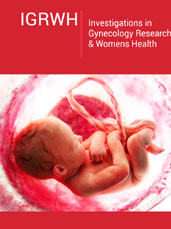- Submissions

Full Text
Investigations in Gynecology Research & Womens Health
Influence of Low-Carbohydrate Diet on Breast Cancer Survival
Medina Sifuentes Ana De Montserrat, Lazalde Ramos Blanca Patricia and Quirarte Baez Sol Maria*
Mexican Social Security Institute, Autonomous University of Zacatecas, Mexico
*Corresponding author: Quirarte Baez Sol Maria, Mexican Social Security Institute and Autonomous University of Zacatecas, Mexico
Submission:July 03, 2023;Published: July 11, 2023

ISSN: 2577-2015 Volume4 Issue4
Introduction
Recently in June 2023 a new analysis published in the journal Cancer aimed to evaluate the role of low-carbohydrate diets play in those patients diagnosed with breast cancer; in relation to cancer-specific mortality and all-cause mortality. As for tumor physiology, remember that high blood glucose levels can promote tumor progression. The type and amount of carbohydrates ingested in the diet are protagonist determinants of postprandial blood glucose levels that stimulate insulin secretion; and this is an important growth factor at the cellular level [1-3].
The researchers found a significantly lower risk of overall mortality in women with breast cancer who had greater adherence to low-carbohydrate diets globally, and to low-carbohydrate diets of plant origin, but not to those of animal origin [4]. There was no significant association with such diets and breast cancer-specific mortality. The findings suggest that survivors of stage I-III breast cancer may benefit from limiting carbohydrate intake, especially fruit juices, sugary drinks and added sugar, and increasing the amount of protein and fat, particularly plant-based ones [5,6].
The above information is in addition to information published in 2021, by the European Journal of Nutrition where they followed for more than a decade; They concluded that higher fructose intake and high sucrose intake after diagnosis was significantly associated with an increased risk of breast cancer-specific mortality. The most recent evidence suggests that both hyperglycemia and hyperinsulinemia can negatively affect the prognosis of breast cancer. Nutritional therapy begins to weigh more heavily as an approach to improving survival in breast cancer. We can interpret these results from the benefit in the treatment of breast cancer but also from a certain sense of control of the disease that patients can feel, having an aspect that is under their domain could be encouraging [7].
References
- Farvid MS, Spence ND, Rosner BA, Barnett JB, Holmes MD (2023) Associations of low-carbohydrate diets with breast cancer survival. Cancer.
- Farvid MS, Junaidah BB, Nicholas DS, Bernard AR, Michelle DH (2021) Types of carbohydrate intake and breast cancer survival. Eu r J Nutr 60(8): 4565-4577.
- Klement RJ, Kammerer U (2011) Is there a role for carbohydrate restriction in the treatment and prevention of cancer? Nutr Metab 8(1): 75.
- Farvid MS, Tamimi RM, Poole EM, Chen WY, Rosner BA, et al. (2021) Post diagnostic dietary glycemic index, glycemic load, dietary insulin index, and insulin load and breast cancer survival. Cancer Epidemiol Biomarkers Prev 30(2): 335-343.
- Farvid MS, Holmes MD, Chen WY, Rosner BA, Tamimi RM, et al. (2020) Post diagnostic fruit and vegetable consumption and breast cancer survival: prospective analyses in the nurses’ health studies. Cancer Res 80(22): 5134-5143.
- Farvid MS, Spence ND, Rosner BA, Chen WY, Eliassen AH, et al. (2021) Consumption of sugar-sweetened and artificially sweetened beverages and breast cancer survival. Cancer 127(15): 2762-2773.
- Farvid MS, Barnett JB, Spence ND, Rosner BA, Holmes MD (2021) Types of carbohydrate intake and breast cancer survival. Eur J Nutr 60(8): 4565-4577.
© 2023 Quirarte Baez Sol Maria. This is an open access article distributed under the terms of the Creative Commons Attribution License , which permits unrestricted use, distribution, and build upon your work non-commercially.
 a Creative Commons Attribution 4.0 International License. Based on a work at www.crimsonpublishers.com.
Best viewed in
a Creative Commons Attribution 4.0 International License. Based on a work at www.crimsonpublishers.com.
Best viewed in 







.jpg)






























 Editorial Board Registrations
Editorial Board Registrations Submit your Article
Submit your Article Refer a Friend
Refer a Friend Advertise With Us
Advertise With Us
.jpg)






.jpg)














.bmp)
.jpg)
.png)
.jpg)










.jpg)






.png)

.png)



.png)






